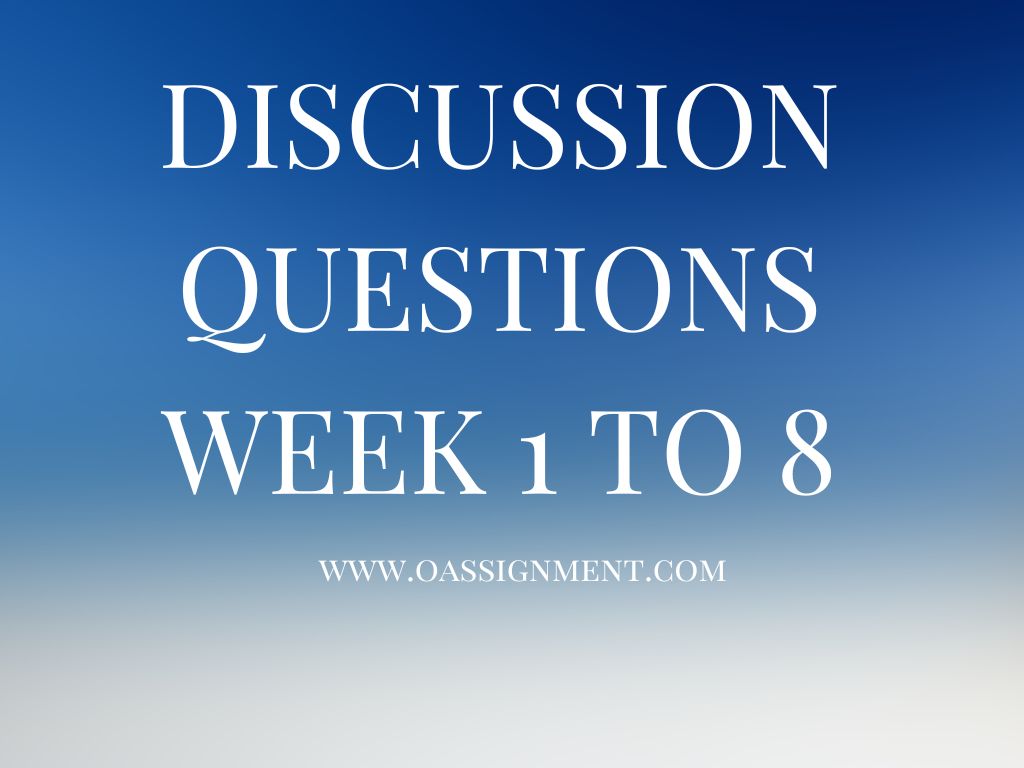Description
JUS 641 Topic 1 Discussion Question 1
Locate a recent criminal matter from local and/or national news and post a summary of it in the Discussion Forum. Additionally, post the URL for the news story. Choose some of your classmates’ news stories and determine relevant case law. Explain how the case law is relevant.
JUS 641 Topic 1 DQ 2
Consider the IRAC method. For a legal practitioner, which portion of IRAC do you think is likely the most important? Support your argument with justification and be prepared to discuss and consider other student answers.
JUS 641 Topic 2 Discussion Question 1
How does one determine the appropriate communication method? When communicating with someone outside of your workplace, is it best to communicate via telephone, written/mailed correspondence, e-mail, or another method? Justify your responses for each circumstance.
JUS 641 Topic 2 DQ 2
Communication with a client develops the client relationship. What are some of the important things that an attorney should do when first considering the representation of a client? How should information concerning a client be shared within a law firm? What should be done with client information that may conflict with the representation of another client represented by another attorney within the same law firm?
JUS 641 Topic 3 Discussion Question 1
What is the demand letter? How can a paralegal or attorney prepare a demand letter that represents their clients’ strengths and weaknesses in the best light? What are some of the tactical decisions that a paralegal or attorney may need to consider when preparing to send a demand letter?
JUS 641 Topic 3 DQ 2
What is an affirmative defense and counterclaim? Why is it critical to include these in an answer? What ramifications may there be if an attorney fails to include an affirmative defense and or counterclaim in an answer? What might an attorney do if he or she realizes they have forgotten or overlooked an affirmative defense or counterclaim?
JUS 641 Topic 4 Discussion Question 1
Discuss with classmates, various motions that may be filed with the courts. For what purposes are these motions filed, and how might they tactically assist a client’s case? Is there a ‘limit’ on the number of motions that an attorney should file with the court? Explain.
JUS 641 Topic 4 DQ 2
Working with a judge and trying to persuade a judge to rule in your favor is not always necessarily a science; it is sometimes an art. What techniques of persuasion besides merely citing facts and the law might persuade a judge in your favor? What are some of the ethical limits of attempting to persuade a judge?
JUS 641 Topic 5 Discussion Question 1
How does a governmental agency gather information when considering rulemaking? Does the rulemaking process allow for truly democratic rulemaking? How can the legal practitioner keep abreast of governmental rulemaking when there are so many public agencies making new rules on a daily basis?
JUS 641 Topic 5 DQ 2
What are some of the methods that might be utilized to persuade a public agency to a particular point of view? Are certain factors more important than others, such as facts vs. law? Explain.
JUS 641 Topic 6 Discussion Question 1
Communicating with a client develops the client relationship. What are some of the important things that an attorney should do when first considering the representation of a client? How should considered representation be communicated with a client? If the client elects to be represented, how must an attorney communicate with the client afterward? What should an attorney do if the client declines representation after an initial consultation?
JUS 641 Topic 6 DQ 2
What does it mean to have a ‘professional tone’ in legal correspondence? How does one assess whether they have an appropriate professional tone? Does professional tone change depending upon the audience, or may it vary?
JUS 641 Topic 7 Discussion Question 1
Oftentimes, client funds must be held in an escrow account. How should an attorney correspond with a client with regard to funds entering or exiting an escrow account? May an attorney become entitled to money in an escrow account? What ethical pitfalls should an attorney avoid with regard to client escrow accounts?
JUS 641 Topic 7 DQ 2
How might an attorney assess whether his or her billing of a client is appropriate? What types of billing agreements might an attorney enter into with a client? Are contingency fee agreements always the best payment agreement from an attorney’s perspective?
JUS 641 Topic 8 Discussion Question 1
What are some techniques of verbal negotiation a lawyer can employ on behalf of his or her client? When might some verbal negotiation techniques work better than others? How can an attorney make these determinations?
JUS 641 Topic 8 DQ 2
How does verbal communication shift depending on whether an attorney is engaged in mediation or arbitration? Does it, in fact, shift? Explain.


